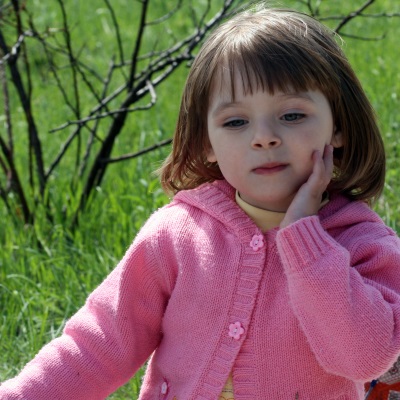 Seemingly overnight, a four-year-old transforms from being a toddler to looking and acting like a miniature person.
Seemingly overnight, a four-year-old transforms from being a toddler to looking and acting like a miniature person.
By four, most children are toilet trained with the exception of the occasional accident when the child is too busy to go to the washroom. During an exciting event, it is helpful if the caregiver encourages the child to take a break for the bathroom and thereby avoid any embarrassment.
Socially, the child is getting better at sharing toys. It might help to take turns and set a timer for two to three minutes. A timer with an hour glass filled with sand allows the child to actually see the time slipping away.
Although four-year-olds are better at playing together, an adult should be within earshot in case an argument erupts. Ideally, the children will resolve the issue on their own. If feelings are hurt and the problem cannot be sorted out, maybe the children should be separated and try again another time. Problems are more likely to occur when children are tired or hungry. If possible, avoid play dates in the late afternoon.
Some children become very peer oriented and have a best friend. Allegiances change frequently and some friendships might seem healthier than others. In time your child will settle into a group with friends that complement their personality.
As a parent, it is important to be available when feelings get hurt or your child is excluded from a big party. Being a calm and stable presence is important for the child who feels vulnerable. Your reassurance will help the child rebound and become stronger. If your child is regularly excluded from group events, it might be appropriate to speak to the teacher to resolve the issue. Perhaps the child will be happier in another social setting.
When your child is excluding a specific individual, it is important to try and find out the reason. Is the family new to the neighborhood or from a different cultural group? When the parents reach out to each other, the children tend to follow. Arranging a picnic in a local park or at a beach is a good way to meet in a neutral setting and help develop connections. Everyone benefits when social circles are expanded.
Verbally, most four-year-olds are able to express basic ideas and have a simple conversation with an adult. It is such a relief when a parent knows what is going on in their child’s world. Also, it is enlightening to hear the child express ideas about what is happening in their world. It is common for a child at this stage to assume they are an expert in all areas. For an adult, it is a balancing act to correct misinformation while encouraging your child to be curious. Having an inquisitive mind will be helpful in the long run. However, a child shouldn’t be allowed to take over conversations. Learning to take turns is an important social skill.
Four-year-olds are fabulous. Have fun.










